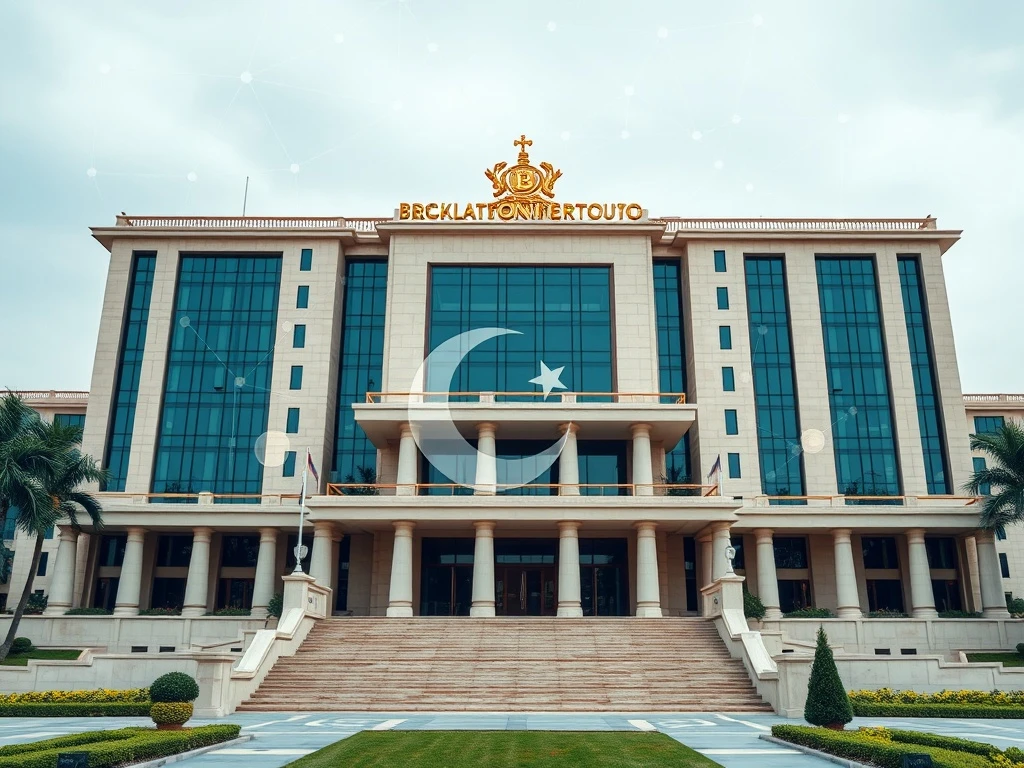Pioneering Pakistan Crypto Regulation: A Bold Step for Digital Assets

Are you ready for a major shift in the global digital asset landscape? Pakistan, a nation increasingly committed to technological advancement, has just taken a monumental step forward in its approach to cryptocurrency. The establishment of the Pakistan Virtual Assets Regulatory Authority (PVARA) signals a new era for Pakistan crypto regulation, aiming to foster innovation while ensuring stability. This move positions Pakistan among countries embracing digital assets, recognizing their potential to reshape economic futures.
What Does PVARA Mean for Pakistan Crypto Regulation?
Pakistan’s federal government has officially launched the Pakistan Virtual Assets Regulatory Authority (PVARA), a dedicated body tasked with overseeing the nation’s burgeoning digital asset sector. This independent regulator is designed to bring structure and clarity to a previously undefined space. PVARA’s core mandate includes:
- Licensing: Granting official authorization to virtual assets service providers (VASPs) to operate within Pakistan.
- Monitoring: Keeping a close watch on the activities of licensed entities to ensure compliance and prevent illicit operations.
- Supervision: Overseeing the overall conduct of the crypto industry, promoting fair practices and consumer protection.
- International Compliance: Ensuring adherence to global standards, particularly guidelines set by the Financial Action Task Force (FATF), which is crucial for international financial integration.
This comprehensive approach to Pakistan crypto regulation reflects a strategic decision to integrate digital assets into the national economy responsibly. The Ministry of Finance’s endorsement of PVARA’s creation marks a critical inflection point, moving Pakistan towards a future-ready financial framework.
How Will Pakistan’s Digital Asset Sector Benefit from This Move?
The establishment of PVARA is not just about control; it’s about cultivation. Federal Minister for Finance and Revenue, Muhammad Aurangzeb, articulated this vision clearly: “We are creating a future-ready framework that protects consumers, invites global investment, and puts Pakistan at the forefront of financial innovation.” This statement highlights several key benefits for Pakistan’s digital asset sector:
- Investor Confidence: A clear regulatory framework reduces uncertainty, making Pakistan a more attractive destination for both domestic and international crypto investors and businesses.
- Consumer Protection: Licensing and supervision help safeguard users from scams and fraudulent activities, building trust in the digital asset ecosystem.
- Economic Growth: By fostering a regulated environment, Pakistan aims to unlock new avenues for economic development, job creation, and technological advancement.
- Global Integration: Adherence to FATF guidelines facilitates smoother international transactions and reduces the risk of being blacklisted for financial impropriety.
This proactive stance demonstrates Pakistan’s ambition to not just catch up, but to lead in the evolving landscape of digital finance.
Is Bitcoin Mining in Pakistan Facing Hurdles?
Despite the forward momentum in regulation, Pakistan’s journey into the digital asset space has encountered challenges. A notable hurdle recently emerged concerning Bitcoin mining Pakistan. Last week, the International Monetary Fund (IMF) reportedly rejected Pakistan’s proposal to offer subsidized power to energy-intensive industries, including Bitcoin miners. This development followed earlier reports in May that Pakistan had earmarked 2,000 megawatts of surplus electricity specifically for Bitcoin mining and AI centers.
This strategy was part of broader digital transformation efforts spearheaded by the Pakistan Crypto Council and supported by the Ministry of Finance, aiming to leverage the country’s energy resources for digital economic growth. While the IMF’s pushback presents a setback, it underscores the complex balance nations must strike between fostering innovation and adhering to international financial guidelines and resource management principles. The future of large-scale Bitcoin mining Pakistan will likely depend on navigating these energy and financial policy considerations effectively.
What’s Next for PVARA and Financial Innovation in Pakistan?
Pakistan’s commitment to digital assets extends beyond domestic regulation; it involves active engagement on the global stage. Bilal Bin Saqib, Pakistan’s Minister of State for Crypto and Blockchain, has been instrumental in these efforts. In early June, he held significant meetings with prominent figures in the digital finance world:
- Cantor Fitzgerald: A meeting with Brandon Lutnick, Chairman and CEO of Cantor Fitzgerald, explored topics like tokenization, Bitcoin mining, and Pakistan’s Web3 future, seeking avenues for collaboration.
- New York City Mayor Eric Adams: Discussions focused on potential collaboration between New York City and the Pakistan Crypto Council, highlighting urban innovation in digital finance.
- US President’s Council on Digital Assets: Saqib met with Robert “Bo” Hines, Executive Director of the council, to discuss crypto-centric initiatives, including Pakistan’s mining operations and the concept of Bitcoin reserves.
These engagements underscore Pakistan’s ambition to position itself as a key player in the global digital economy. The ongoing efforts by PVARA and related government bodies aim to create an environment where financial innovation can thrive, potentially even exploring strategies like deploying Bitcoin reserves in DeFi for yield, as suggested by Minister Saqib. The path ahead involves continuous adaptation, international collaboration, and a clear vision for digital economic growth.
Conclusion: Pakistan’s Bold Leap into the Digital Future
The launch of PVARA represents a significant and decisive step by Pakistan to embrace the digital asset revolution. By establishing a dedicated regulatory body, Pakistan is not only aiming to bring order to its crypto space but also to foster an environment conducive to investment and technological advancement. While challenges, such as those related to energy policy for Bitcoin mining Pakistan, persist, the nation’s proactive engagement with global leaders and its clear intent to lead in financial innovation signal a robust commitment. This move positions Pakistan crypto regulation as a model for emerging economies, balancing the need for oversight with the immense potential of digital assets to drive economic transformation.







